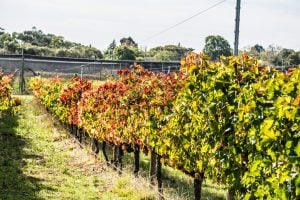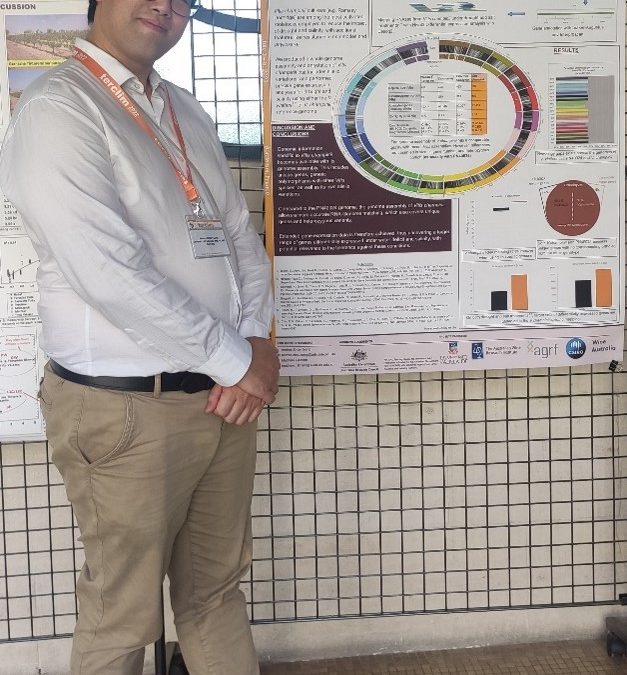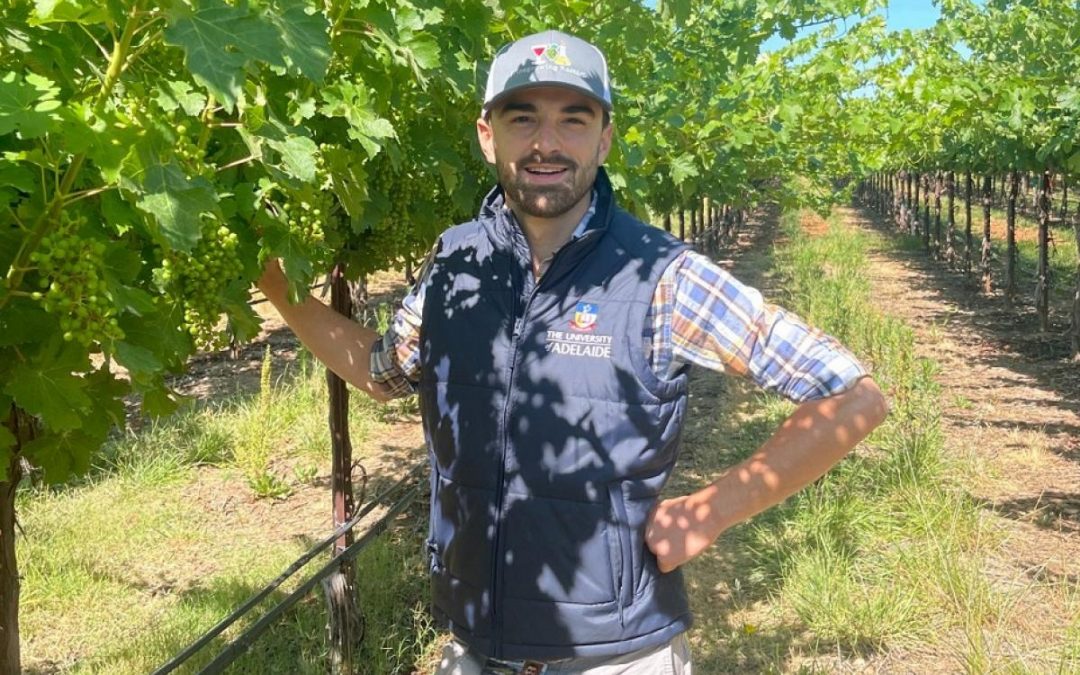Genetic basis of salt exclusion in grapevine
Background

Photo: D-T. Pham
Soil salinity costs the Australian grape and wine industry ~$60M pa in lost yield. Salt accumulation in berries also reduces wine quality, with wine from many Australian regions susceptible to exceeding legal limits for sodium and chloride ions leading to wastage.
Objectives/aims
This project will identify genes from Vitis spp. rootstocks, that confer salt exclusion in the grapes of grafted V. vinifera scions, to accelerate the selection of rootstocks specifically designed for production in Australian conditions. Genes identified by genotyping-by-sequencing of the progeny of crosses between salt-including and salt-excluding rootstocks, will undergo molecular and physiological characterisation. Marker-based prediction of salt exclusion will be confirmed in further germplasm and used to generate crosses of new rootstock material to test and commercialise via local nurseries.
Key outputs from this project
Research Articles
A Zhou‐Tsang, Y Wu, SW Henderson, AR Walker, AR Borneman, RR Walker, M Gilliham (2021) Grapevine salt tolerance. Australian Journal of Grape & Wine Research, 27(2), 149-168, DOI 10.1111/ajgw.12487
ON THIS PAGE
Latest News

Macrowine Conference – Isara Vongluanngam
By Isara Vongluanngam Every two years, wine researchers from around the world come together to exchange their latest findings and knowledge at OenoMacrowine conference. This renowned international congress focuses on macromolecules and secondary Metabolites of vine...

Andres Experience at Terclim 2022 | Bordeaux, France
By Andres Zhou Tsang I am sure many of the ARC Training Centre Members have very fond memories of the 13th International Terroir Congress, taking place in Adelaide back in 2020, which connected grape and wine scientists and industry leaders from all over...

Delaying grapes from ripening results in more flavoursome wine
Republished with permission from The University of Adelaide Newsroom Researchers from the University of Adelaide have crunched the data on the best methods to delay grapes ripening on the vine, leading to better quality wine. “Our research focused on three...







